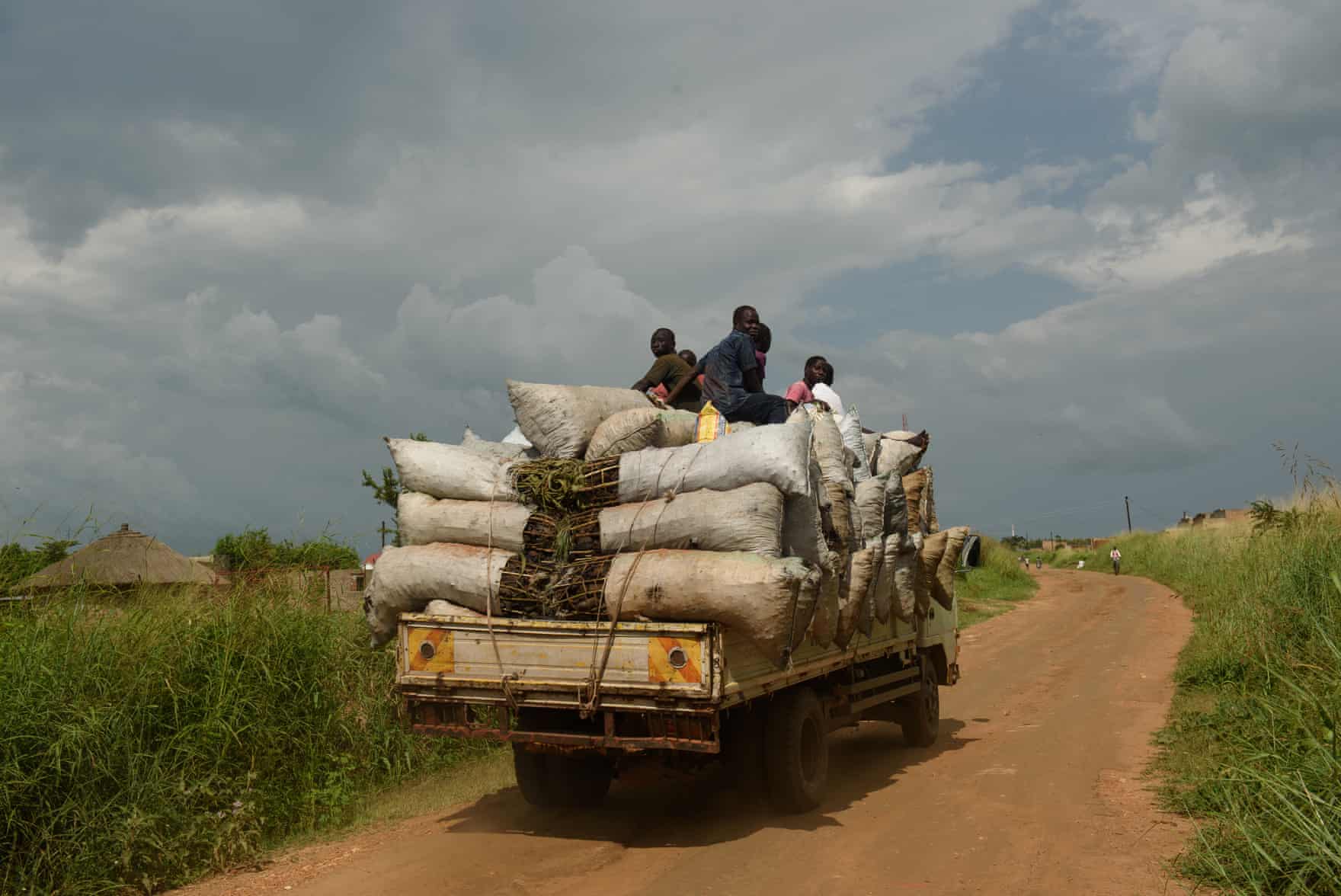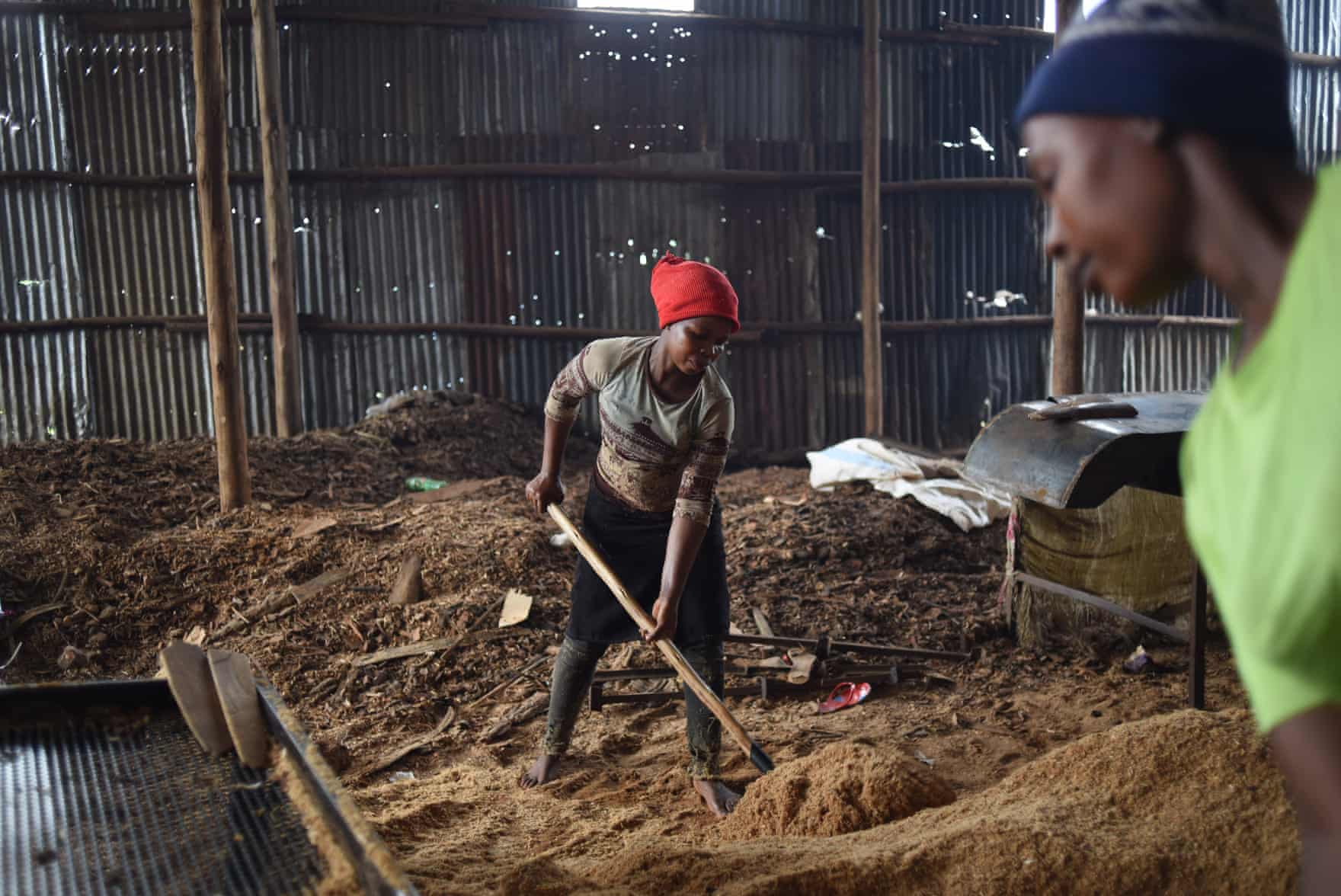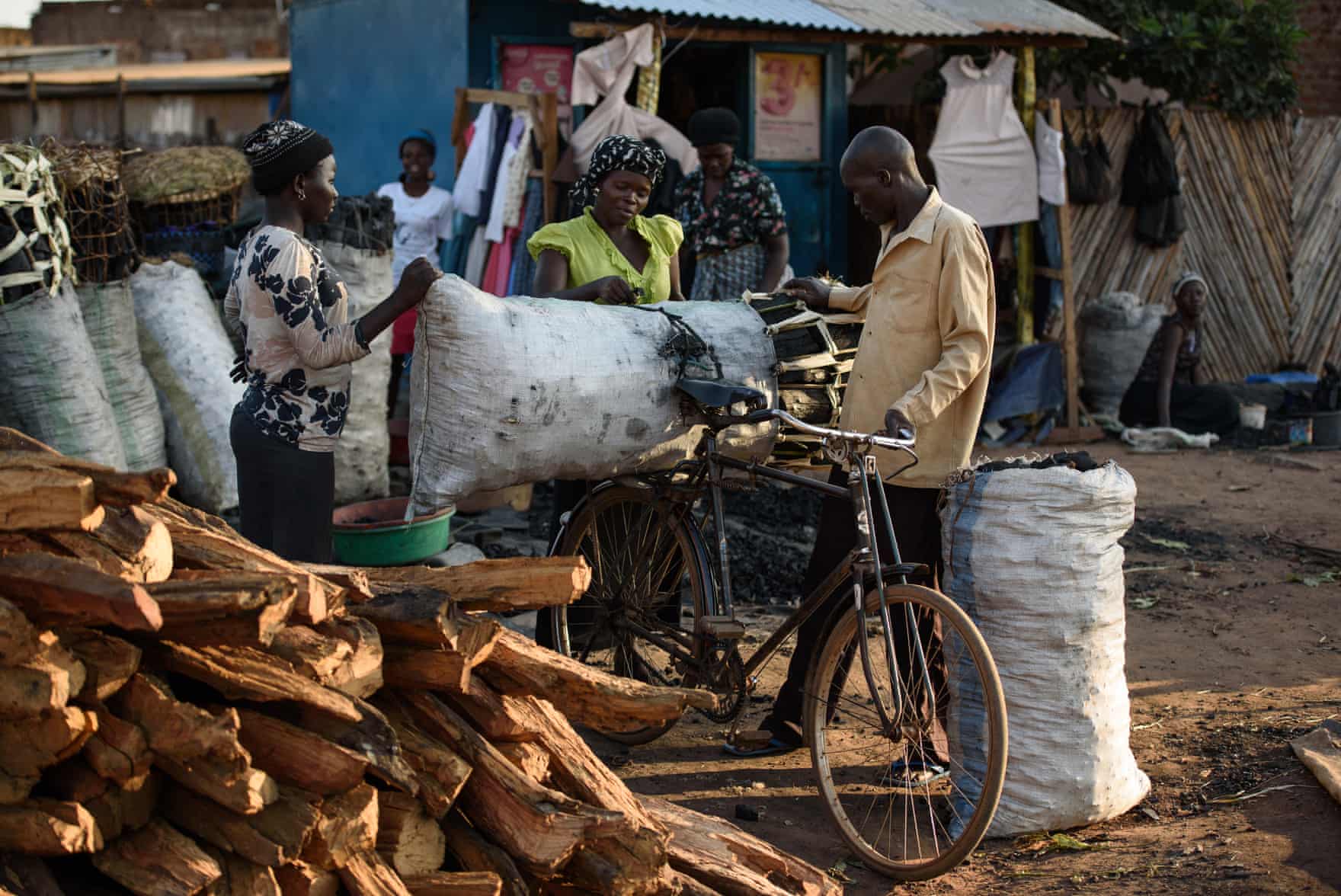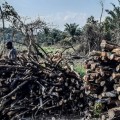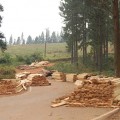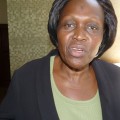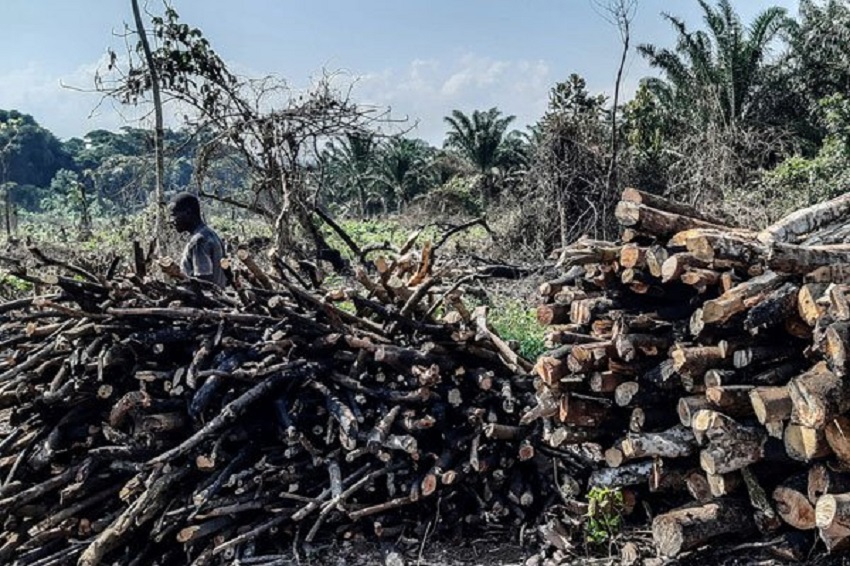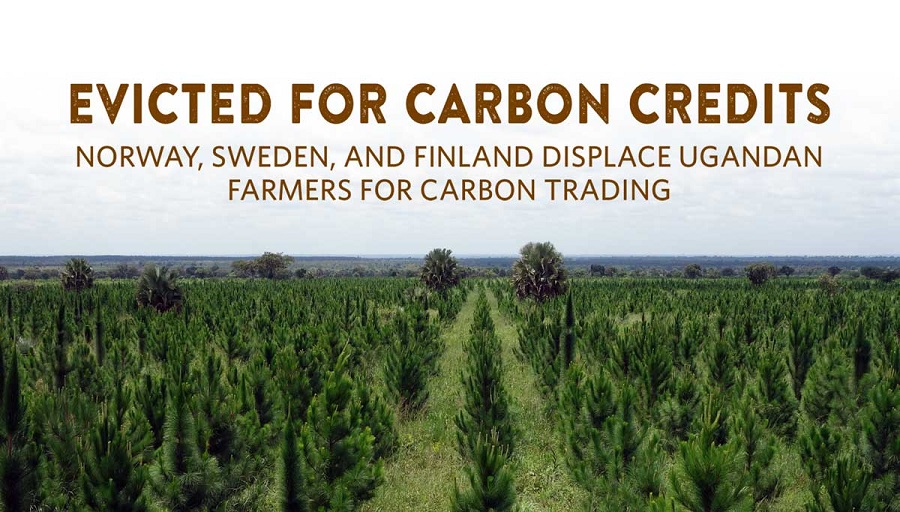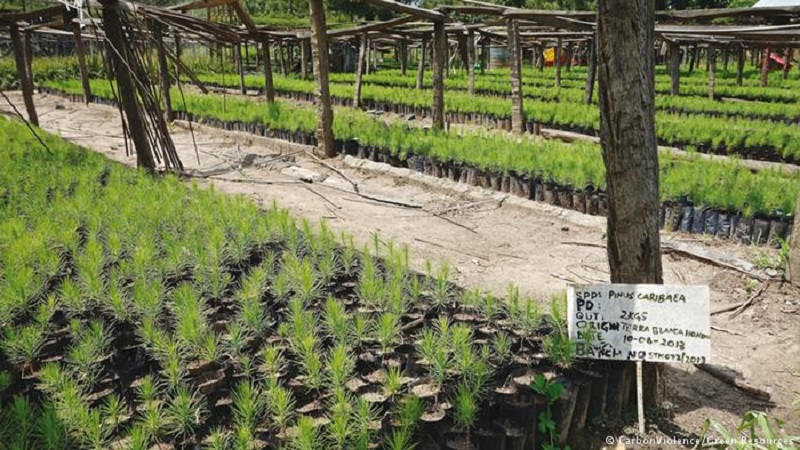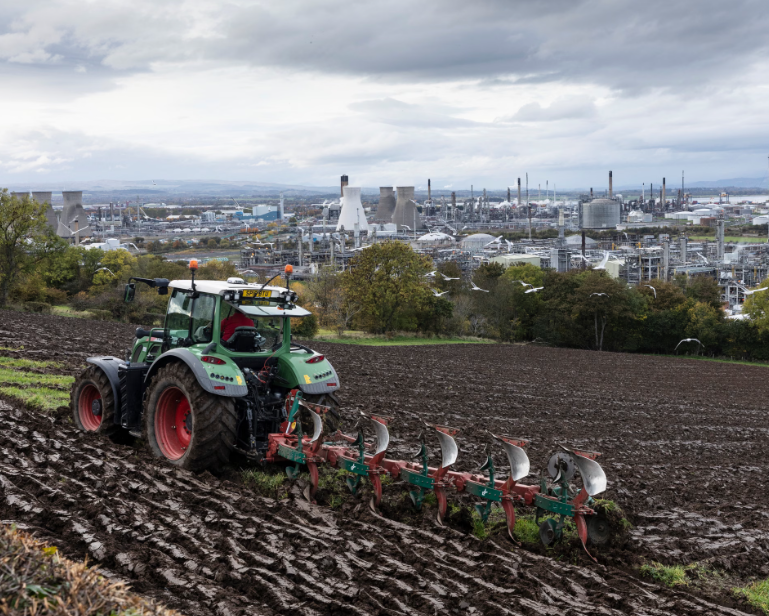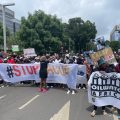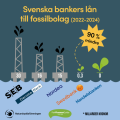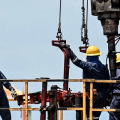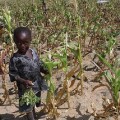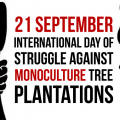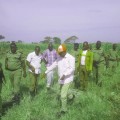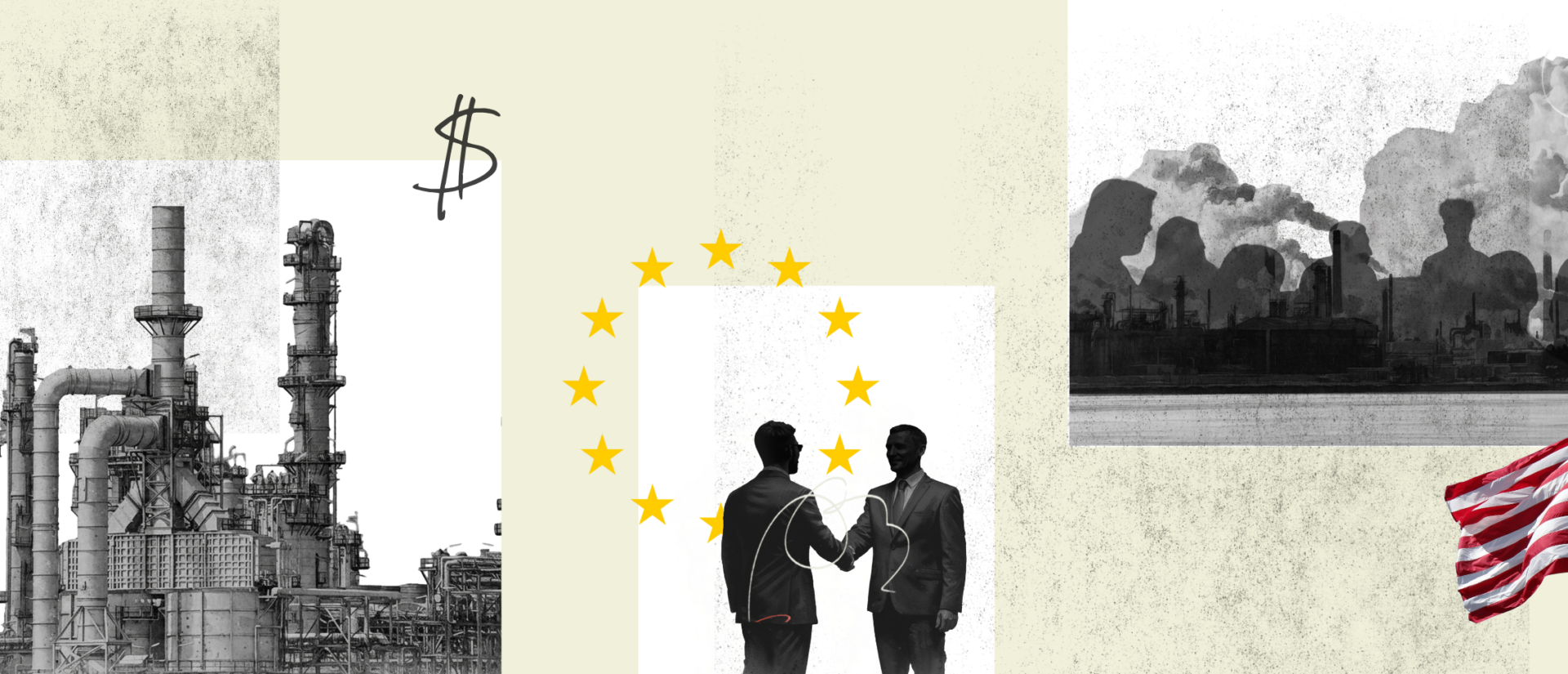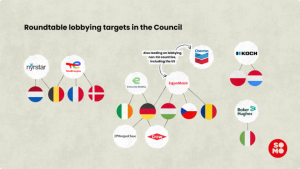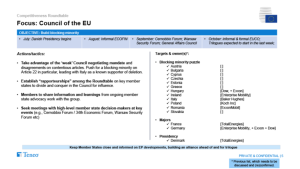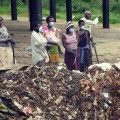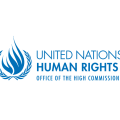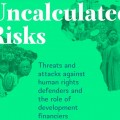Charcoal is an integral part of everyday life in Uganda, where most people rely on some form of wood fuel to cook or boil water. For many, the sale of trees also provides a valuable income. Yet this levelling of the landscape, which causes loss of habitat for wildlife and leads to climate change, is unsustainable
All photographs by Jennifer Huxta

Uganda’s charcoal trade is causing rapid destruction of the country’s forests. Each year, about 80,000 hectares (200,000 acres) are cleared for the production of charcoal or timber, according to the National Forestry Authority. Demand for charcoal has increased dramatically over recent years, driven by Uganda’s population growth and urbanisation. Campaigners warn the trade is now unsustainable, and local leaders are trying to crack down on the cutting of trees for charcoal.

Wood collected for charcoal burning in Koch Lii in Nwoya district, northern Uganda. In the worst years of the Lord’s Resistance Army (LRA) insurgency, residents fled northern Uganda and the forests became impenetrable. Now Nwoya loses 20-40 hectares each month, according to Okello Alfred Okot, a local government representative. ‘The rate at which these people are cutting trees is terrible,’ he says. The authorities of Nwoya, Amuru and Gulu districts have all banned the trade. Anyone caught violating the ban is fined 1.5m Ugandan shillings per truckload (£300)
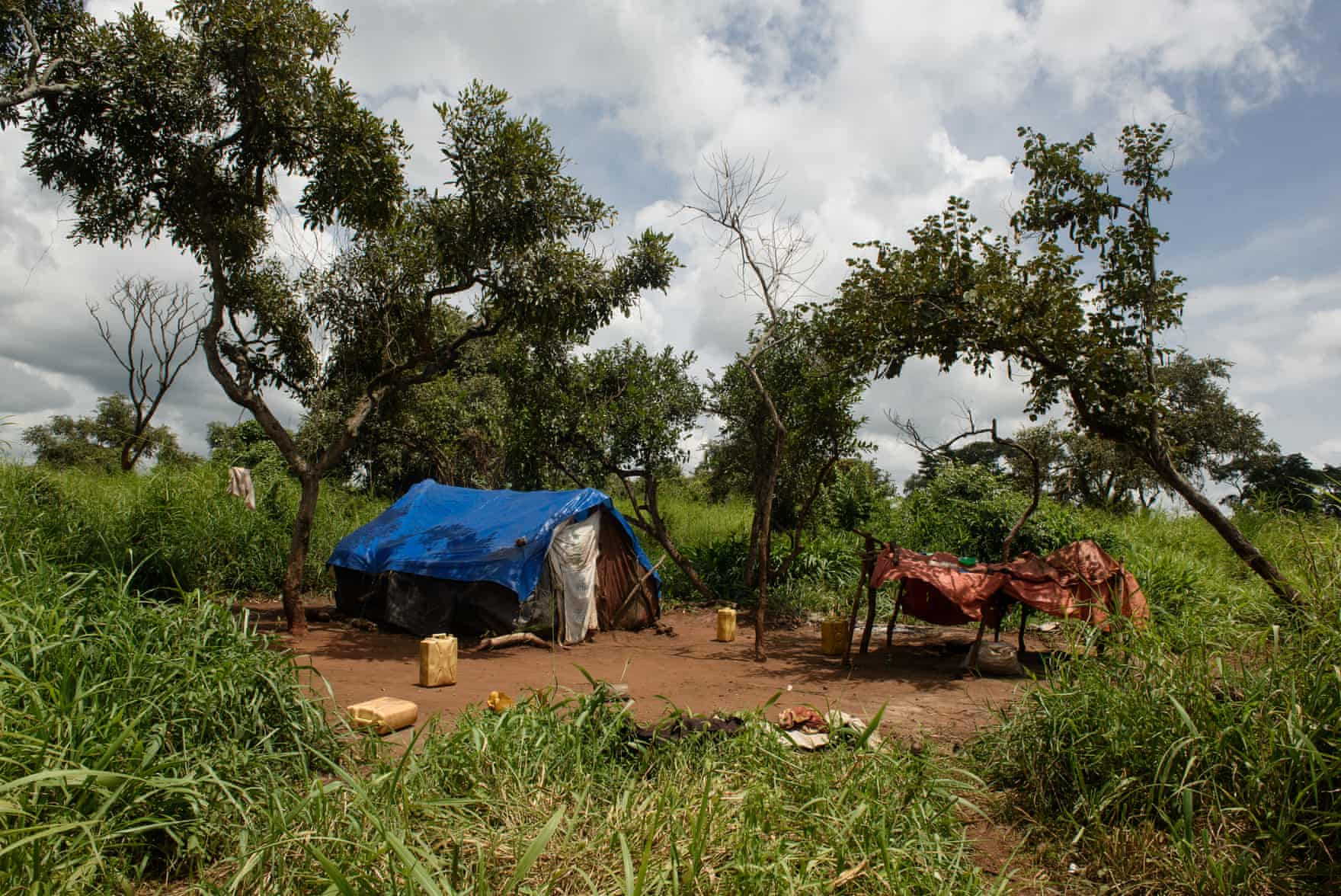
Swaliki Kakande, 39, a charcoal burner, has been living in this camp in Koch Lii for two years. He works on 32 hectares of land, burning charcoal, cutting trees and hauling logs. It’s extremely taxing work, he says. ‘I’m here because of poverty. Because there are no jobs. We have pain all over [our bodies] and we feel sick. We feel backaches, pains in our chest, and also because we inhale a lot of smoke we feel palpitations, like our hearts beating very fast.’ Kakande is paid a commission on each bag of charcoal he makes, of 15,000 Ugandan shillings.
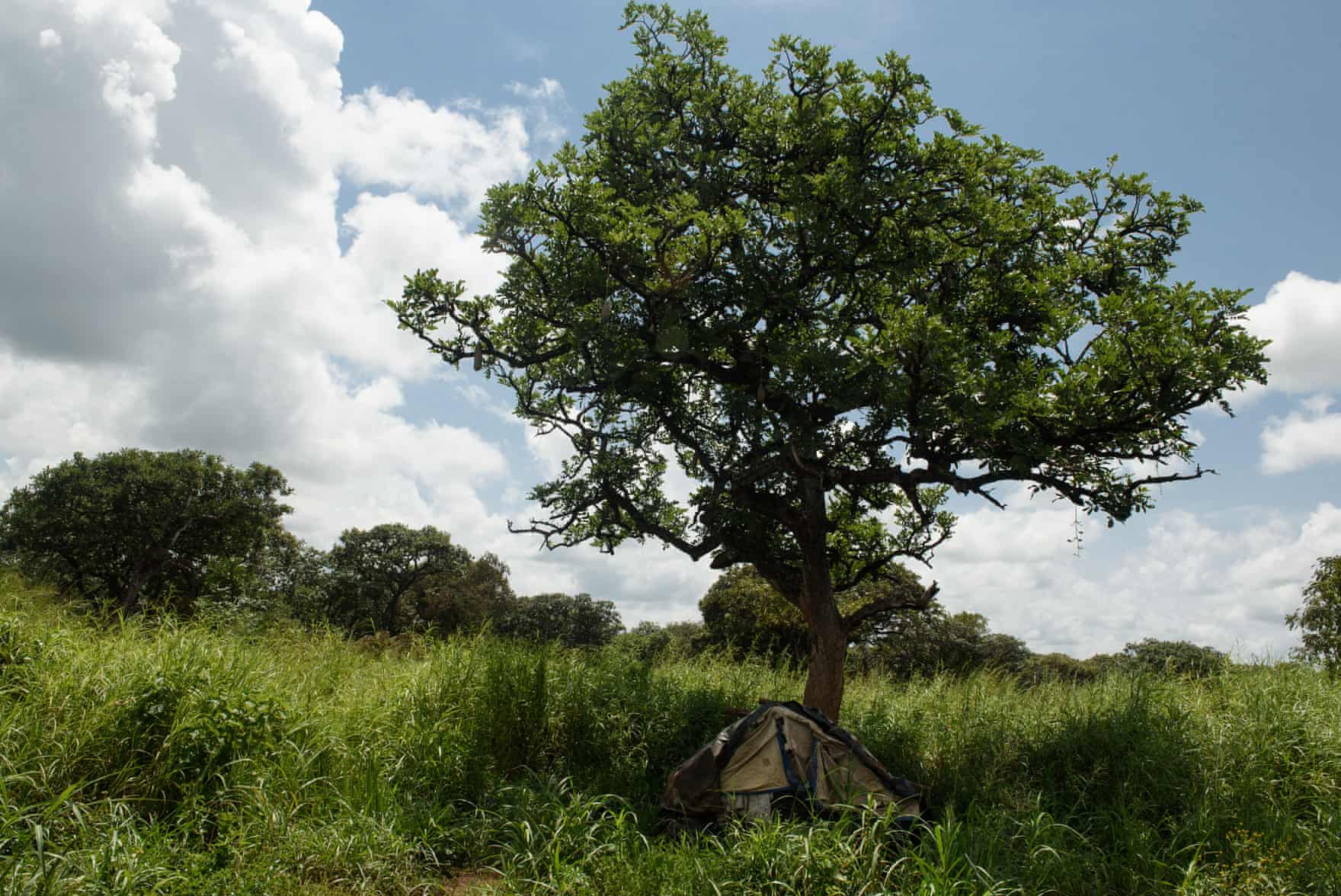
Like many other charcoal burners in Koch Lii, Kakande moved to the area from central Uganda. Burners are often in conflict with locals, who view outsiders with suspicion. Last May, a group of local people attacked a charcoal burners’ camp in neighbouring Amuru district. One person was killed and 39 injured. According to a police spokesman, Patrick Jimmy Okema, the attackers claimed the charcoal burners were destroying trees and their motive was to control deforestation. However, land conflict is common in Uganda, which is still recovering after decades of conflict
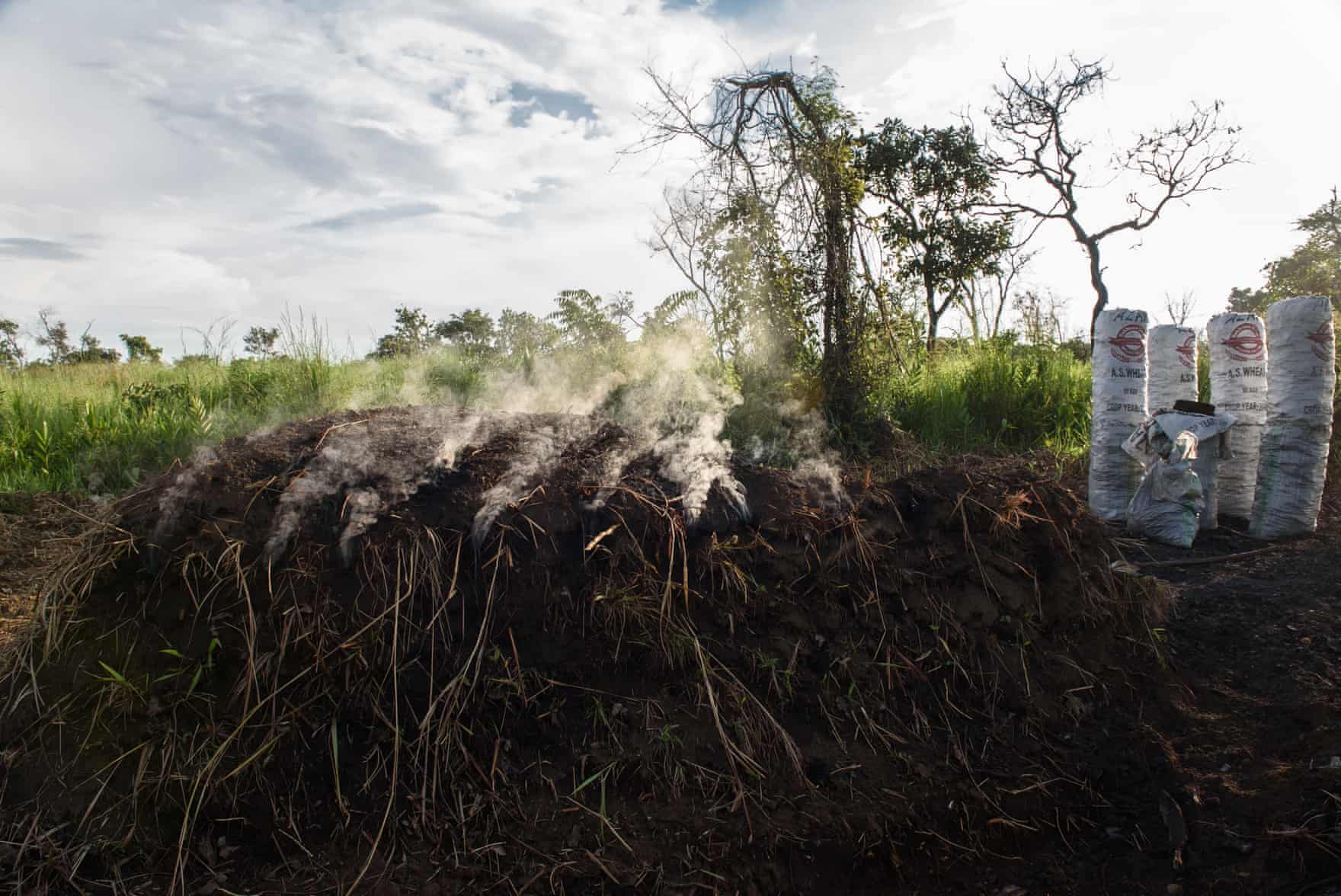
Wood in the process of carbonisation under a mound of earth and grass, in Amuru district. In Nwoya, local government officials are developing an incentive plan to encourage landowners to keep their trees, funded by the penalty fines. Landowners who don’t sell their trees for charcoal burning are to be paid 1m Ugandan shillings each year
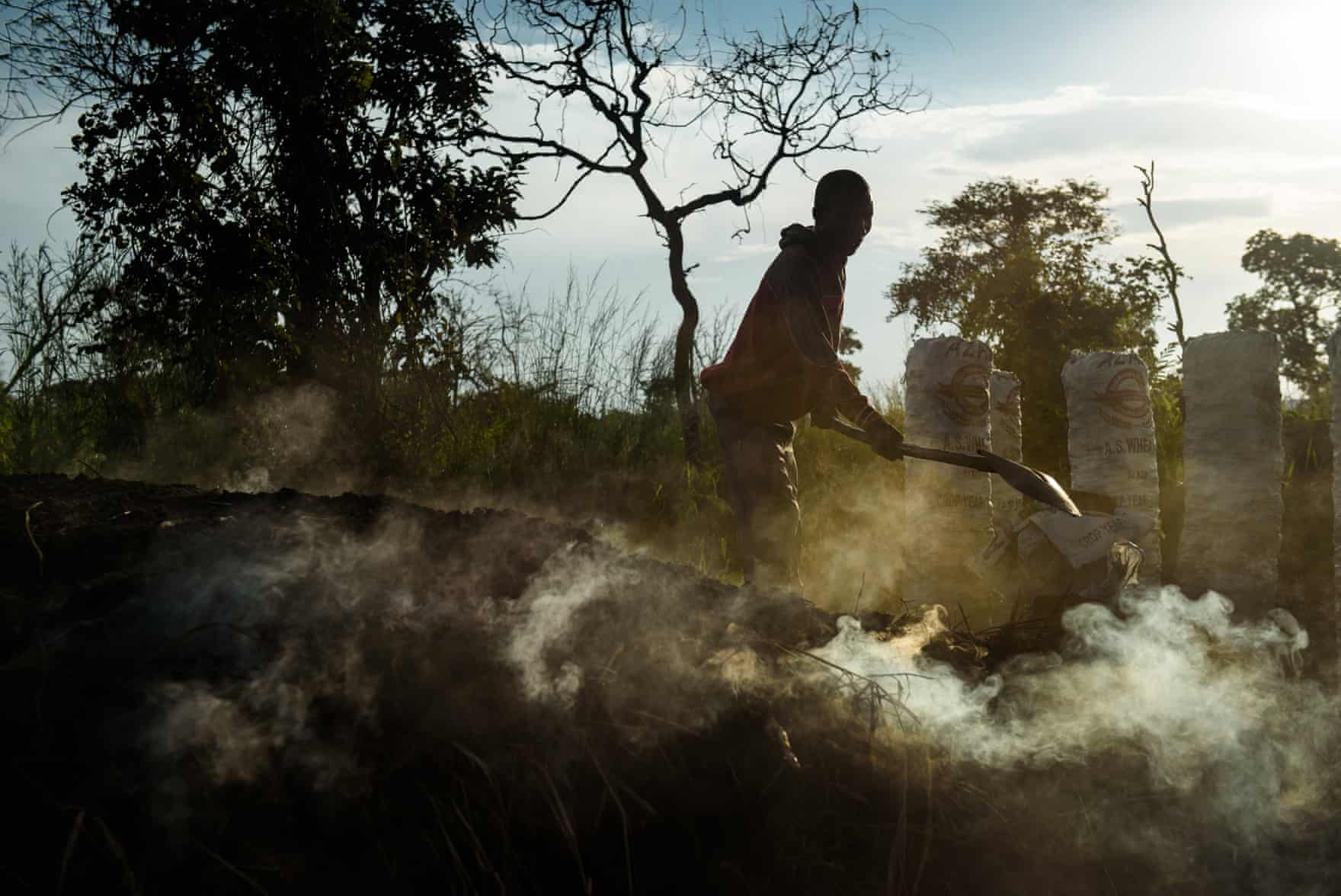
A charcoal burner distributes earth on the charcoal mound. Okello believes the incentive scheme will be effective. ‘People’s minds are gonna change because they’ll say, “If I keep this tree for five years, I’m going to get 5 million from the district.”’ Last year, to mark the International Day of Forests, Nwoya district gave 1,000 pine seedlings to 2,000 farmers for each to plant roughly two acres of new trees
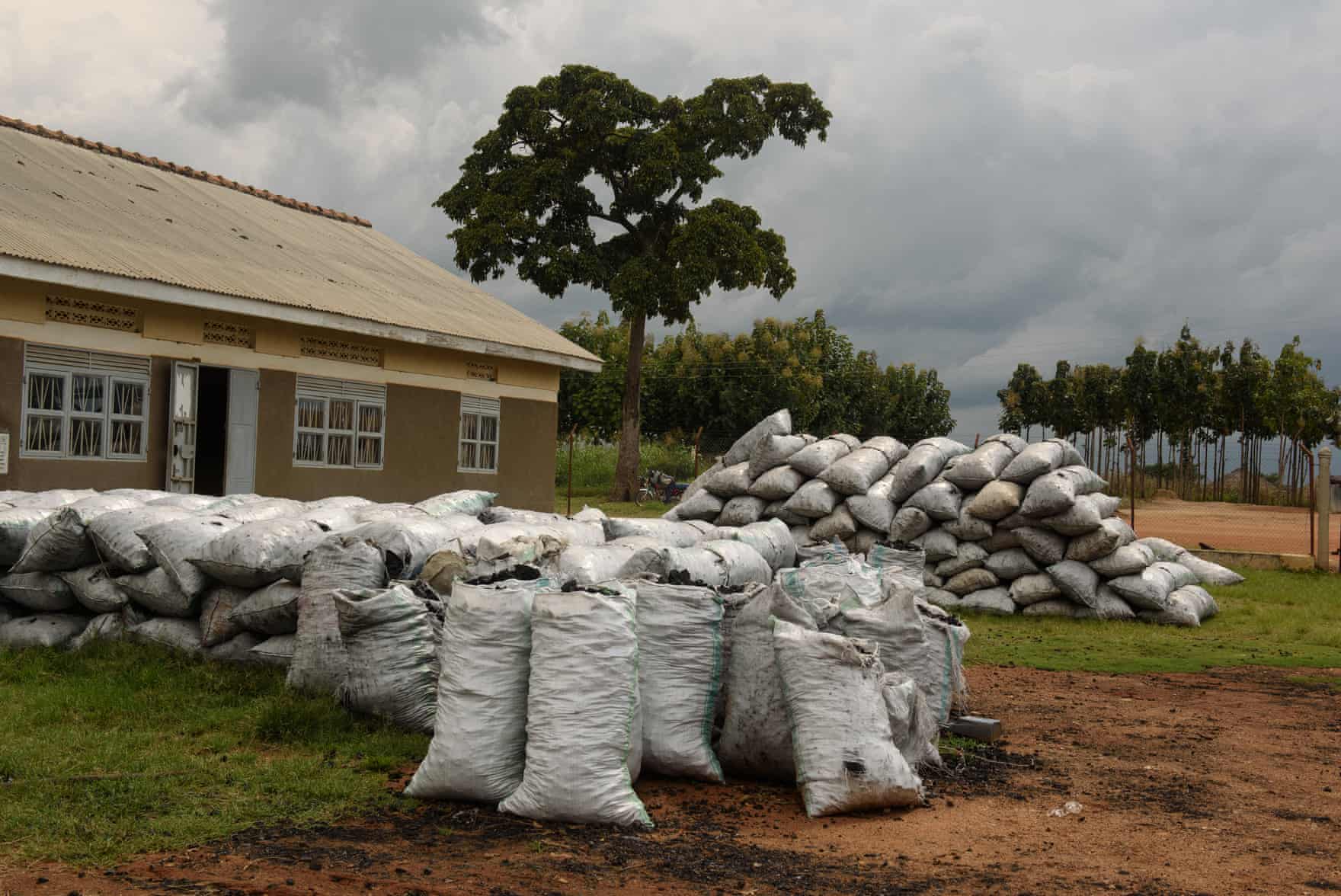
Impounded charcoal in Pabbo, Amuru district. Despite Amuru’s countywide ban on the commercial charcoal trade, sellers bribe police to move trucks loaded with charcoal at night, or receive false permits for charcoal burning and tree cutting
A truck loaded with charcoal heads south from Amuru district toward Kampala, where companies and restaurants use charcoal for energy. Transporters need a permit from the district forest officer to burn charcoal, but it is easy to buy a fake one
The market in Gulu, where people continue to buy and sell charcoal. The vast majority of Ugandans rely on wood fuel for cooking and boiling water
In Kampala, women shovel and sort sawdust (from scrap wood) to make briquettes, at Jellitone Suppliers. The recycled sawdust is added to agricultural waste biomass such as coffee leftovers, wheat hulls, and groundnut husks and then compacted. The end product is 20% cheaper and more fuel efficient than charcoal from forest wood. The burning briquette is also a cleaner fuel, giving off carbon dioxide rather than the carbon monoxide that charcoal creates. Along with bans on the charcoal trade, such products could help tackle deforestation
A man buys charcoal from a vendor in the market in Gulu. In Nwoya, Okello warns that if the current rate of deforestation continues, the district could lose 1,000 acres in a year. ‘In the next five years, we shall have a desert,’ he says. ‘Because our own water sources will dry up, all the wetlands will drain and dry off. The whole watershed is affected’
Original Post: The Guardian
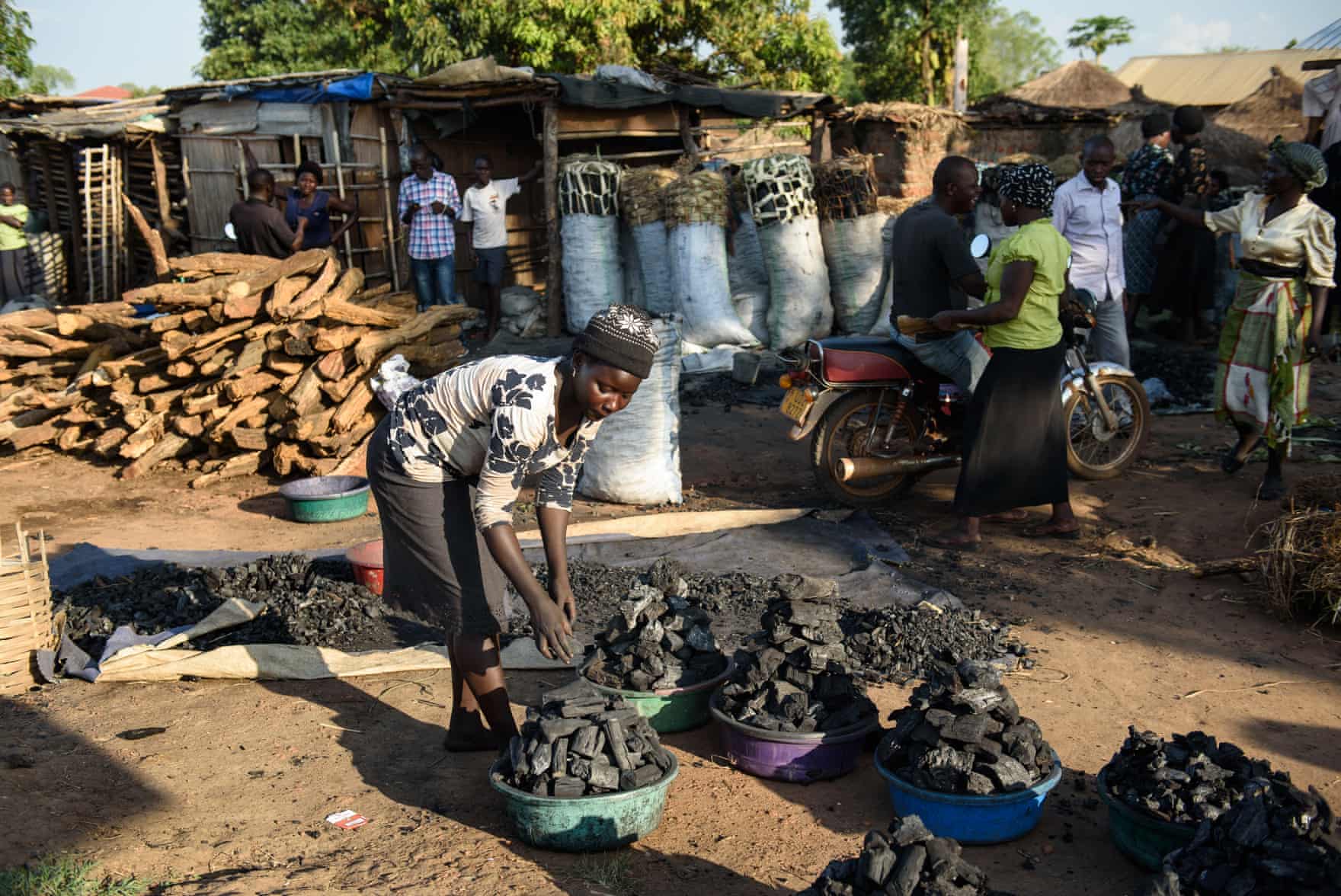

 MEDIA FOR CHANGE NETWORK2 weeks ago
MEDIA FOR CHANGE NETWORK2 weeks ago
 MEDIA FOR CHANGE NETWORK1 week ago
MEDIA FOR CHANGE NETWORK1 week ago
 MEDIA FOR CHANGE NETWORK1 week ago
MEDIA FOR CHANGE NETWORK1 week ago
 MEDIA FOR CHANGE NETWORK4 days ago
MEDIA FOR CHANGE NETWORK4 days ago
 MEDIA FOR CHANGE NETWORK6 days ago
MEDIA FOR CHANGE NETWORK6 days ago
 MEDIA FOR CHANGE NETWORK3 days ago
MEDIA FOR CHANGE NETWORK3 days ago
 MEDIA FOR CHANGE NETWORK2 days ago
MEDIA FOR CHANGE NETWORK2 days ago
 MEDIA FOR CHANGE NETWORK1 day ago
MEDIA FOR CHANGE NETWORK1 day ago







